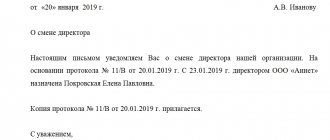Direct responsibilities of the project manager
Tasks and actions that are performed by the employee personally, or the implementation of which is controlled by him, grouped by project phases.
Integration Management
- Concept Definition (clarification): goals and results of the project,
- requirements and objectives of stakeholders,
- limitations and criteria for project success
- Development Planning of project implementation strategy
- Development of a project management plan
- Analysis of the project plan for the integration of goals, objectives, results, risks, project resources and their coordination with the integrated parameters of the program (for projects included in the program).
- Project management and management
- Organization of work to complete a project or phase
Change management
- Concept Define change management principles
- Planning how to respond to change
- Collection of requests and proposals for changes;
- Documenting lessons learned
What should you pay attention to?
Based on the goals being pursued, you can decide which manager with what experience is suitable for their implementation. It is worth noting that specialists in some areas are simply not available, since these niches are not in demand or the market cannot offer constant demand.
When managing a small enterprise, you can solve some problems yourself, without involving an outside professional. It is enough to study a sample job description for a project manager and draw up a plan for completing simple tasks.
See also: Employment contract with the project manager
Quantitative Impact Indicators
Real quantitative/measurable indicators characterizing the scale of direct influence at a given job level:
- Direct indicators Planned duration of the project, months.
- Total cost of the main and optional parts of the project, million.
- Number of personnel in the department, people.
- Planned labor costs for the project, people. days
- Physical and technical parameters of the project product
- Authority to sign contracts for an amount not exceeding $ thousand.
- The authority to approve changes in the project with the impact of: On increasing the cost of project work, no more than $ thousand.
- For milestones that determine the duration of the project, no more than days
- Program investment indicators: PBP
Project manager responsibilities:
An employee holding this position is vested with the following powers:
- Carry out operational management of the project and require project team members to perform their duties in a timely and high-quality manner,
- Make decisions about hiring or firing employees to perform the functions of project roles,
- Monitor and approve relevant changes to the project within the framework defined for this position,
- Sign and endorse documents within your competence.
- Involve the necessary Company specialists and project team members in the examination and approval of decisions made on the project;
- Schedule and conduct meetings to review project progress,
- Request from all project participants (including contractors) information related to the implementation of the project;
- Make decisions on imposing penalties or bonuses on members of the project management team;
- Escalate resolution of problematic issues to the level of the Management Committee
Role and qualifications of the person responsible for construction implementation
A project manager in construction is most often hired for a specific initiative, such as the construction of a swimming pool, shopping center or residential building. At the same time, depending on the specifics of the company’s activities, it is possible for a specialist to carry out the entire complex of work (from the initial cycle to commissioning) or concentrate on certain types of work (interior finishing, installation of heating or ventilation systems, installation of equipment).
Employers require certain skills and knowledge from a manager of this kind, which directly depend on the complexity of the proposed tasks.
The average profile of a construction management specialist looks something like this:
- higher education in construction or engineering, sometimes for simple projects they can invite a professional with a secondary specialized education, but with extensive experience in the industry;
- at least 3-5 years of experience in construction, including in management positions; they are often looking for a specialist who has previously supervised the construction of a similar facility;
- the ability to build and manage a team or organize effective interaction between existing employees;
- knowledge of the legislative and regulatory framework governing the construction industry, as well as the basics of financial accounting and budgeting;
- knowledge and practical use of special software (MS Project, Primavera, Spider, AutoCAD, etc.);
- ability to work in intensive (often irregular) mode, negotiate, incl. complex and make responsible decisions.
Recently, in the process of developing interstate relations, specialists are increasingly required to know English.
Most often, a construction manager must work with employees provided by the employer. However, there are times when he is tasked with forming his own team “from scratch” or is allowed to bring 1-2 of the most important employees with him. Therefore, the ability to work in a team with different people, to find a common language with them to achieve set goals, is one of the most valuable qualities of a manager in the construction industry.
The salary level is usually set on an individual basis after an interview and a decision on concluding a contract. In addition to monthly payments, bonuses are often provided based on the results of the work performed (after the end of the initiative and commissioning of the structure).
Responsibilities of the Project Manager:
An employee holding this position is responsible for:
- Implementation of the project within the approved time frame, with the specified quality, within a certain budget,
- Achieving planned project indicators,
- Building an effective Project Management System, incl. for efficiency: project management teams,
- project communications,
- decisions taken on the project, etc.;
Job description for the specialty "Manager of a construction organization"
Job description for the head of a construction organizationzip
You can download the job description for the head of a construction organization for free. Job responsibilities of the head of a construction organization
I approve
_____________________________ (Last name, initials)
(name of organization, its ________________________________
organizational and legal form) (director; other person authorized
approve job description)
00.00.201_g.
m.p.
JOB DESCRIPTION
MANAGER OF CONSTRUCTION ORGANIZATION
——————————————————————-
(name of institution)
00.00.201_g. №00
I. General provisions
1.1. This job description establishes the rights, responsibilities and job responsibilities of the head of the construction organization ___________________________________________________ (hereinafter referred to as the “enterprise”).
Name of institution
1.2. The head of a construction organization belongs to the category of executives.
1.3. A person appointed to the position of head of a construction organization must have a higher professional (technical) education and work experience in management positions in the field of capital construction for at least 5 years.
1.4. Appointment to the position of the head of a construction organization and dismissal from the position is carried out on the basis of an order from a higher organization or by decision of the owners.
1.5. The head of the construction organization reports directly to
_______________________________________.
1.6. If the head of the construction organization is absent, then his duties are temporarily performed by a person appointed in the prescribed manner, who is responsible for the proper performance of his official duties.
1.7. The head of a construction organization conducts business on behalf of the owners of the organization.
1.8. The head of a construction organization in his activities is guided by the charter of the enterprise and this job description.
1.9. The head of a construction organization must know:
— standards of office work (classification of documents, procedure for execution, registration, passage, storage, etc.);
— the procedure for using computer technology, communications and communications;
— technical regulations for construction, building codes and regulations;
— profile, specialization and structure features of a construction organization;
— production capacities and human resources of the construction organization;
— organization of logistics for construction work;
— the procedure for developing and approving capital construction plans;
— production technology and methods of conducting construction work;
— basics of planning, strategic and operational planning;
— theory of management, fundamentals of production management, innovative management, fundamentals of financial management, personnel management;
— accounting and taxation in construction;
— the procedure for concluding and executing civil contracts;
— the procedure for drawing up and agreeing on business plans for the production, economic and financial and economic activities of a construction organization;
— legislative and regulatory legal acts, administrative and regulatory materials on capital construction issues;
— rules and regulations of labor protection, safety precautions, industrial sanitation and fire protection;
— requirements for environmental protection;
— fundamentals of economics, organization of production, labor and management;
— labor legislation;
— forms and systems of remuneration.
II. Functions
The head of a construction organization is assigned the following functions:
2.1. Distribution of responsibilities and determination of the degree of responsibility of workers in a construction organization.
2.2. Planning and management of the activities of a construction organization.
2.3. Coordination of interaction between structural divisions of a construction organization.
2.4. Monitoring compliance with work quality standards.
2.5. Representing the interests of a construction organization in court, arbitration, government and administrative bodies, as well as in relations with other business entities.
2.6. Identifying and analyzing problems in the work of a construction organization and taking measures to resolve them.
III. Job responsibilities
The head of a construction organization performs the following duties:
3.1. Ensuring timely and high-quality implementation by the construction organization of contracts, contracts, and obligations.
3.2.Management, in accordance with current legislation, of the economic and financial-economic activities of a construction organization.
3.3. Determination of measures and methods for solving problems of the construction organization subordinate to him.
3.4. Control and provision:
— compliance with the law in the activities of a construction organization;
— timely payment of established taxes and fees;
— the correct combination of economic and administrative methods of management;
— unity of command and collegiality in discussing and resolving issues;
— moral and material incentives to improve the quality of construction work;
— application of the principle of material interest and responsibility of each employee for the work assigned to him and the results of the work of the entire team;
- payment of wages on time.
3.5. Issuing orders (instructions) in all areas of activity of a construction organization.
3.6. Organization of accounting and provision of reporting on the activities of the construction organization to the owner.
3.7. Taking measures to provide a construction organization with qualified personnel, the rational use of their professional knowledge and experience, and the creation of safe and favorable working conditions for life and health.
3.8. Taking measures to comply with environmental protection legislation when performing construction work.
3.9. Control for:
— rational use of material, technical and labor resources, reducing costs and improving the quality of construction work;
— compliance with the rules and regulations of labor protection and safety regulations when performing construction work.
3.10. In accordance with labor legislation and the established procedure, the hiring and dismissal of employees.
3.11. Application of measures to encourage or impose penalties on employees, creating conditions for their professional growth.
3.12. Approval of internal labor regulations, vacation schedules, job descriptions, production instructions and other organizational and legal documents.
3.13. Coordination of the activities of divisions (services) of a construction organization.
3.14. Determination of pricing policy in the field of construction work.
3.15. Together with the workforce, based on the principles of social partnership, ensuring the development, conclusion and implementation of a collective agreement, compliance with labor discipline, promoting the development of work motivation, initiative and activity of workers in a construction organization.
IV. Rights
The head of a construction organization has the right:
4.1. Decisions:
- about hiring and dismissal from work;
- on proposals to bring workers who have violated labor discipline and are guilty of causing material damage to the organization to material and disciplinary liability in accordance with the labor and civil legislation of the Russian Federation;
- according to ideas about moral and material encouragement for particularly distinguished employees.
4.2. Within the limits established by the legislation of the Russian Federation, determine the composition and volume of information constituting a trade secret, the procedure for its protection.
4.3. Represent the interests of a construction organization in relations with citizens, legal entities, government and administrative bodies.
4.4. To act on behalf of a construction organization without a power of attorney.
4.5. Manage the financial resources and property of the construction organization in compliance with the requirements determined by law, the organization’s charter, and other regulatory legal acts.
4.6. Open current and other financial accounts in banking institutions.
4.7. Issue powers of attorney for civil transactions, representation, etc.
V. Responsibility
5.1. The head of a construction organization is responsible for:
- in case of causing material damage, within the limits determined by the criminal, civil, labor legislation of the Russian Federation;
- in case of committing an offense in the course of carrying out its activities, within the limits determined by the criminal, civil, administrative legislation of the Russian Federation;
- in case of failure to fulfill or improper performance of their official duties, which are provided for by this job description, within the limits determined by the labor legislation of the Russian Federation.
5.2. The head of a construction organization who unfairly uses the property and funds of the organization entrusted to him in his own interests or in the interests contrary to the interests of the founders (owners) bears responsibility within the limits established by the civil, criminal, and administrative legislation of the Russian Federation.
5.3. The head of a construction organization bears personal responsibility for the consequences of an unreasonable decision made by him, which entails a violation of the safety of property, its unlawful use or other damage to the organization.
Head of structural unit: _____________ __________________
(signature) (surname, initials)
00.00.201_g.
I have read the instructions,
one copy received: _____________ __________________
(signature) (surname, initials)
00.00.20__










